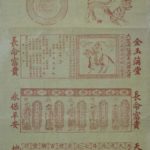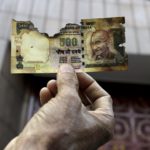Traditional Handmade Nonya Kuehs and Authenticity
Gavan Sing’s family has been in the business of making ‘Nonya kuehs’, a traditional cake popular in Singapore, for almost four generations now. In his interview with BBC, Sing introduces his authentic handmade kuehs.
‘Chronotopes’
He connects the Nonya kuehs produced now with his grandpa who started the business from a home kitchen in a village in the 1960s. Links between products made now and cakes made in the past in a different place are created. As Cavanaugh and Shankar’s article suggests, ‘chronotopes’ are generated to validate authenticity.
Labour
Sing emphasises the labour needed to make kuehs. Fisrt, they are handmade rather than made by machines. Second, his version of ‘Kueh Lapis’, a kind of layered kueh, has ten layers of different colours, compared with most Nonya kuehs sold ‘in the market’ that have nine layers.
Not Profitable
As kuehs can be made by machines, making kuehs by hand is not very profitable. Sing chooses to preserve this tradition. In this case, authenticity is not used in marketing to generate profits (although one could also argue that in the interview Sing is marketing the authenticity of the kuehs he made, and the interview itself may be considered a way to attract more customers?). Rather, it is Sing’s intention of not using machines which would be more profitable that reinforces the authenticity. (He also builds a distinction between his business and the ‘corporate world’. See below.)
The Value of Authenticity
Sing, in the interview, talks more about the producers (himself and his family) than the consumers. He believes the ‘life lessons’ one gets from his business are different from those learnt in the ‘corporate world’. Although the business may not bring great economic value, the tradition gives the makers other benifits including the ‘life lessons’.
Watch the interview here:
Reference
Cavanaugh, J and S, Shankar. 2014. Producing Authenticity in Global Capitalism: Language, Materiality, and Value: American Anthropologist 116 (1): 51-64.
Contributed by JarynHuang on 09/02/2019






